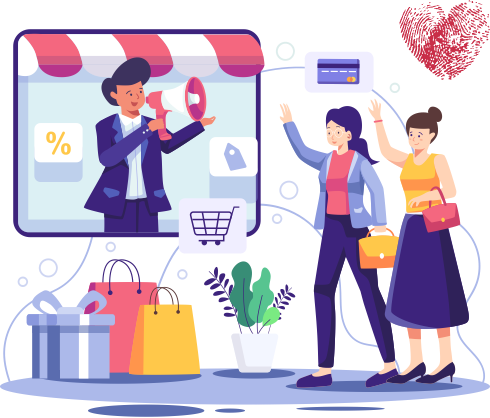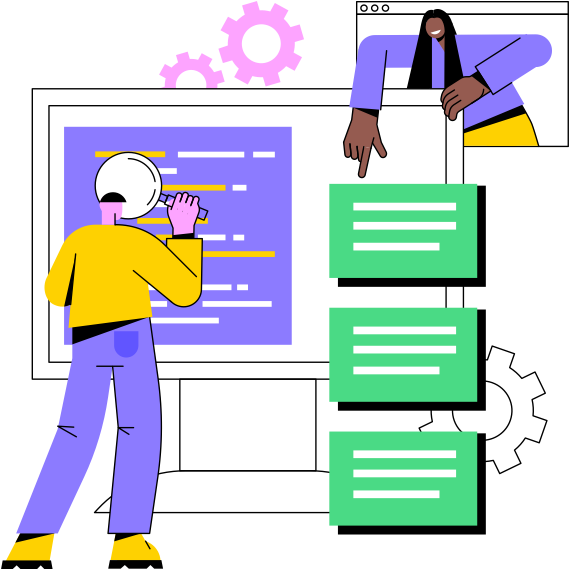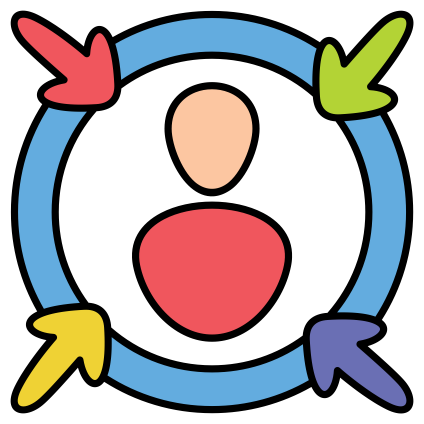Customer Benefit Focused Mindset
It takes a team!
I have been writing blogs based on a chapter in my recent book The 'Benefit' Blueprint for Startup Success. It is about 25 questions every entrepreneur must ask themselves.
If you would like to book a complimentary discovery call to help with your challenge or share your story please let me knowThis blog brings me to the 11th question. If you want a deep dive into other questions, please subscribe to my blog. I would also invite you to buy my book which is NOW
The question is :
Does my team have the mindset and skills to prioritise customer benefits? Pack a bunch of nerds or specialists in a room and they will start bragging about their expertise. I have been an expert so have seen this first-hand. At the end of the day what matters is how you are perceived by those who want to rent your nerdiness or expertise. When it comes to customers, how your expertise translates into benefits for them should be your focus.
Let’s take a deep dive to the question :
As a founder, the key objective is to turn an idea into a living, breathing successful business. The key ingredient to achieve this is a talented pool. This talented group always has a group of specialists as part of the core team, even if you are outsourcing the work it still requires specialists. These are experts in their field, brimming with knowledge and experience.
But, as I’ve learned from my journey (in a hard way) as an expert, it’s easy for teams to become overly focused on showcasing their technical prowess rather than translating that expertise into tangible benefits for customers. The real question isn’t just about what the team knows, it is about having the mindset and skills to prioritise customer benefits
Coming together is a beginning; keeping together is progress; working together is success. - Henry Ford
The “Expert Trap”
Experts are naturally proud of their skills. Whether it’s coding, design, marketing, or product development, specialists are often eager to demonstrate their technical knowledge. While this is valuable, it can sometimes lead to what I call the “expert trap”—a situation where the team becomes more focused on the brilliance of their expertise than on how that expertise benefits the customer.
In this trap, the focus shifts away from delivering value to the end user and towards the internal recognition of skill. You’ll hear discussions about the most advanced technology, the cleanest code, or the cleverest marketing strategy, but these conversations often miss the mark if they don’t also address how these innovations improve the customer’s experience.
From Expertise to Customer-Centricity
Instead of thinking about how they can prove their expertise, they need to ask themselves: How can we turn our skills into something that benefits the customer? The emphasis should be on creating value for the end user, not just showing off technical competence.
Consider the difference between a technically perfect product that confuses customers and a slightly less sophisticated product that users find intuitive and helpful. The latter delivers more value to the customer because it addresses their needs in a way that’s easy to engage with. That’s the essence of customer-centricity—making sure that every innovation, every feature, and every service is designed with the customer’s benefits in mind.
Customer-Centric Team and its Culture
1. Hire for Customer Empathy, Not Just Skills
Technical skills are essential, but they aren’t the only qualities that matter. When building your team, you should look for individuals who understand the importance of customer empathy besides their technical prowess. Team members with a strong sense of empathy are more likely to design and deliver solutions that align with what customers truly need and value.
Ask yourself: Are you hiring people who can put themselves in the customer’s shoes? Do your team members naturally consider how their work impacts the end user?
Actionable Step: During the hiring process, ask candidates to provide examples of how they’ve solved problems with the customer in mind. This will help you identify people who naturally think about benefits and value, not just features and capabilities.
2. Encourage Cross-Functional Collaboration
Often, specialists work in silos, focusing on their particular area of expertise without considering how their work connects to the larger customer experience. Breaking down these silos and encouraging cross-functional collaboration can help ensure that customer benefits remain at the forefront of every project.
Ask yourself: Are your teams collaborating effectively to create cohesive customer experiences? Or are they working in isolation, focused only on their niche?
Actionable Step: Create opportunities for cross-functional teams to work together, whether through joint meetings, shared projects, or brainstorming sessions. The more your team collaborates, the more likely they are to develop solutions that provide real, holistic value to your customers. Think more offsite events.
3. Instil a Culture of Continuous Feedback
By instilling a culture of continuous feedback—both from customers and internally—you ensure that your team stays focused on what matters most to the people using your product or service.
Ask yourself: Does your team regularly seek and act on customer feedback? Are they open to adjusting their approach based on what they hear from users?
Actionable Step: Implement regular feedback loops where customer insights are shared with the entire team. Make sure that this feedback is seen as an opportunity to improve and adjust the product to better meet customer needs.
4. Celebrate Customer Successes
In many organisations, team success is often measured by the completion of a project or the achievement of a technical goal.
But when you prioritise customer benefits, success should be measured by how well the team’s work impacts the customer’s life. Celebrate when customers achieve success using your product. This reinforces the importance of customer-centricity and helps shift the focus from internal recognition to external impact.
Ask yourself: Does your team celebrate customer wins as much as internal milestones? Are customer success stories shared and highlighted?
Actionable Step: Create a practice of sharing customer success stories with the team. When a customer provides positive feedback or achieves a significant outcome thanks to your product, make sure the team knows about it. This will help them stay motivated and focused on creating further benefits.
Developing the Skills to Prioritise Customer Benefits
Beyond mindset, the team needs the right skills to consistently deliver customer benefits. This includes both technical skills and the soft skills required to communicate effectively with customers, understand their needs, and translate those needs into actionable solutions.
1. Customer Research and Analysis
Understanding your customers requires rigorous research. Ensure your team has the skills to conduct customer interviews, analyse user data, and identify patterns in customer behaviour. This will help them create solutions that align with customer needs and provide meaningful benefits.
Actionable Step: Provide training on customer research methods, such as persona development, surveys, and data analysis. Equip your team with the tools they need to gather and interpret customer insights effectively.
2. Agile Development Practices
Your team needs to be adaptable. Agile development practices allow teams to remain flexible, iterate quickly, and adjust based on feedback. It is ideal for staying aligned with customer benefits and continuous improvement and refinement.
Actionable Step: Encourage your team to adopt agile methodologies, such as regular sprint reviews and retrospective meetings. These practices foster a culture of continuous improvement and ensure that customer benefits remain a top priority.
3. Communication and Customer Engagement
Your team needs strong communication skills to effectively engage with customers, understand their pain points, and articulate how your product provides benefits. Active listening and the ability to communicate clearly and persuasively is key.
Actionable Step: Provide opportunities for your team to engage directly with customers, whether through support roles, user testing sessions, or feedback calls. Strengthen their ability to listen to and communicate with customers for a deeper understanding of customer needs.
Expertise in Service
At the end of the day, your team’s technical brilliance should be in service of one thing: delivering value to your customers. When your team has the mindset and skills to prioritise customer benefits, their expertise becomes a powerful tool for building customer trust, loyalty, and long-term success.
We’re not competitor-obsessed, we’re customer-obsessed. We start with what the customer needs and we work backwards.- Jeff Bezos
This topic is an expanded article from my book THE ‘BENEFIT’ BLUEPRINT FOR STARTUP SUCCESS Chapter 3, Question 11.
© Sameer Babbar
If you would like my ideas mailed to your Inbox first please also join me on my Substack
Disclaimer: This is for information only. It does not consider your objectives, financial situation, or needs. The author, his company, his associates, his directors, his staff, his consultants, and his advisors do not accept liability for any loss or damage, including, without limitation, any loss that may arise directly or indirectly from the use of or reliance on the information provided










